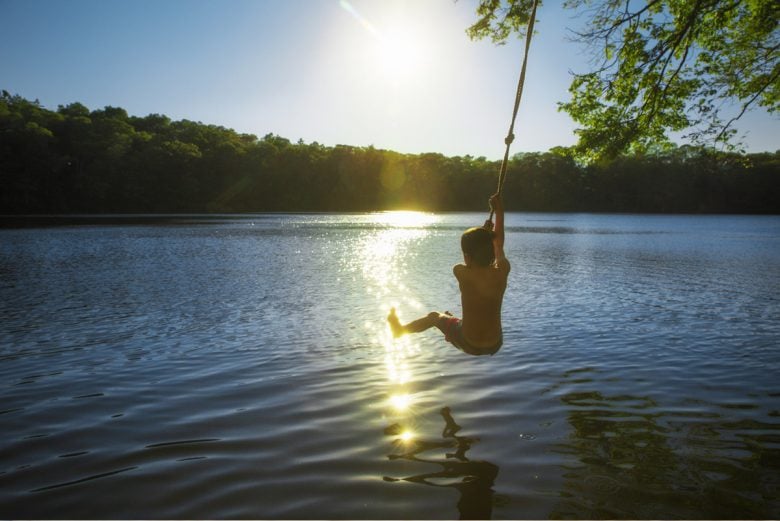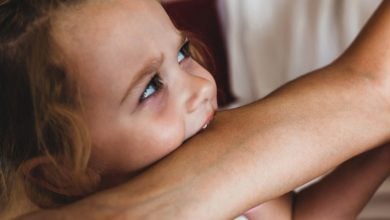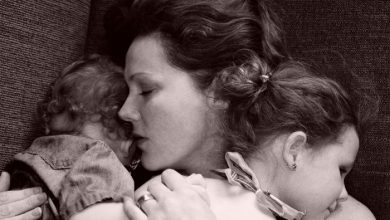
Before you hit the brakes, consider this.
Kids need risk. It’s part of growing up. You know that—but sometimes your child wants to stretch farther than you think is safe or age-appropriate.
How do you know when to say No and when to say Go? in this episode, Carol and Anne share tips to recognize which risks are correct, and how to support your child in taking risks wisely—from big risks to small.
This episode’s Parenting Practice
Notice any risks that your child is wanting to take. Use the prayer that Carol shares that it will work out if it’s meant to be and if not, it will fall apart. If you see that it’s mean to be, get out of your child’s way and support them in taking that risk—including finding a mentor, if that’s correct.
Transcript of podcast episode
Carol: My prayer was if this is correct for him to experience this, everything will fall into place and it will continue to move forward. If it’s not correct, it will fall apart and fade away.
Welcome to The Child Whisperer Podcast. I’m your host, Carol Tuttle, author of the best-selling parenting book, The Child Whisperer. I’m with my co-host, Anne Tuttle Brown.
You may have already experienced this with one or several of your children and I suspect you will at some point that your child wants to pursue something that you feel is risky for various reasons. Maybe it’s just taking on too much, they’re maybe not ready for it. It seems something they should wait for.
Anne: Or they’re not old enough.
Carol: They’re not old enough. They don’t have the skill sets for, they might not…
Anne: It just cost too much money.
Carol: Yeah, too much money. It won’t feel safe.
Anne: At my age of children, it will create a big mess. That’s a risk I’m not willing to take.
Carol: So it’s typically we’re probably talking grade school and up, especially pre-teens and teens is you’re gonna start seeing this. It happened in our family when our oldest son came to us when he was 15 and said he wanted to ride his bike from California to Utah. And I thought, “That seems risky. For one, you don’t even own a bike,” and this is just going through my head. It was a risk physically to his own well-being, he’s on roads. I’m thinking practically about it and telling myself, “Where did this come from because it’s not like he’s a cyclis?” And I thought, “Well…” I kinda just heard it. Didn’t make a big deal of it and then I thought, “Well, it’ll probably just fade away.” So when he came back, he says, “Well, we’ve changed our mind.” I thought, “Oh, good. They’re not gonna do it now.” It was, “Now, we’re gonna ride our bike across the country.” It became a bigger risk and this is…
Anne: Where was it the first time he presented it?
Carol: California to Utah.
Anne: Oh, now, he’s going from Colorado.
Carol: Now, he’s switched Utah to… Yeah. Colorado to Baltimore which is the bulk of the country, you know. He missed a couple states because he couldn’t start early enough and he explained that it was his best friend and his best friend’s older brother that was organizing the trip. And so, we had all kinds of questions as parents. We would have to fund it, obviously. It was a few thousand dollars and flip phones were just new. It wasn’t like there was communication readily. So, we had to weigh out a lot of things and it obviously would feel risky. Well, my intuition guided me again to a prayer and I said a prayer because I knew I didn’t wanna be the one that either got behind it or stalled it or stopped it based on my perception of it and my feelings about it. It needed to be his thing. It needed to be purely on his choice.
Anne: Yeah. On both sides, I think that’s a good point that you’re like, you don’t wanna be the one stopping it, but you don’t also wanna be the one fueling it. And then he’s on there and he’s like, “You made me do this.” You know, it’s got to be his thing, his choice.
Carol: Well, if it’s correct, it will work out. I trust that and if something’s correct, it’ll come together.
Anne: So, what was your prayer?
Carol: My prayer was if this is correct for him to experience this, everything will fall into place and it will continue to move forward. If it’s not correct, it will fall apart and fade away. And I knew I could just let it go, that one or the other was going to play out. I had that much faith in my intention and what I had said to put it in…
Anne: And be very clear. Yeah.
Carol: …another, you know, a higher power to say, “God, I’m putting this in your hands because ultimately, you’re more the authority on my son’s life than I really am. I’m just being given an opportunity to play his role as a parent.” So, I let it go and it started to fall into place. And I kept seeing signs of that. So I got behind it and then I just decided it’s gonna be fine, he’ll be fine, and he’ll be safe.
Anne: How did Dad respond?
Carol: He kinda tried to meddle. He’s Type 2, so he gets into the details and you need to do this, you need to do… I had to keep helping him…stay hands off.
Anne: So you really just had to say, “This is your thing.” Like, how did he prepare for his bike ride across the country?
Carol: Well, he really didn’t. We were like, “Tell me if you wanna do some long rides.”
Anne: Were you like, wanting to like…
Carol: Well, just, in ourselves, we’re going… Well, I made… I told him one thing. I said, “I’m not gonna get you home from Kansas or anywhere short of Baltimore. I will pay for your ticket from Baltimore back to Utah, but I will not finance any other transportation home. You’re in this.” You know, “You’re choosing in.”
Anne: And then you’re just were hands off.
Carol: “You can’t change your mind halfway.” Yeah. “You know, if you do that, you’re gonna have to ride your bike back. So you might as well go the rest the distance.” So I knew it brought boundaries we had to set in place and then Dad had to just kinda keep reminding himself, “It’s his thing, let him do it his way. He’ll enroll us when he needs support. He’ll let us know,” and he did. And third day into this major undertaking, we get a call and he did have a cell phone so we did hear from him at least every other day. He says, “I’ve just realized what I’ve gotten myself into.” And we’re like, “Yeah. Yeah, you have.”
Anne: How long of a trip was it? Three weeks?
Carol: Five weeks.
Anne: Five weeks. Oh, my goodness.
Carol: Their goal was to get to Virginia for 4th of July. They made it like, within five, six days after. If Chris listens to this, I’m sure he’d correct me on those details. Then they got to Baltimore and flew back in. You know, it was life-changing for him.
Anne: It was.
Carol: It was a rite of passage. He couldn’t even drive yet and he’s riding his bike across the country, you know? He still owns that bike, by the way, you know, 20 years later.
Anne: Yeah. It set him up for success in so many other experiences in his life, something to reflect upon and know that he can do hard things, and take a risk.
Carol: Well, that’s the thing with risk. Call them rites of passages, so to speak. There used to be in indigenous cultures, very specific sort of rituals, rite of passage that brought a child from their juvenile state to their adult state that they were kind of proven. They brought forward their ability to believe in themselves. And we don’t have that really unless you allow it to materialize in your life and see the opportunity, and really support it. And let it be something that’s driven more from a divine support than your own. That was the bigger thing for me. That’s the lesson I think I would convey is that I knew the risk was correct because I was shown it was. It wasn’t up to me to make that decision.
Anne: So my Type 3 daughter, she loves to just obviously true to her nature just charge ahead. She gets an idea, she’s determined and she loves art. She loves to create and she wants to bake cakes a lot. And in my mind, I’m like, that’s risky because I don’t wanna do it because it’s gonna be a big mess and I’ve got a 2-year-old that wants to crack the eggs too and it’s not fun for me. And so, the other day I was just thinking, “I need to like, teach her how to bake a cake by herself at 6 years old so she can just have at it.”
Carol: I was baking cakes since six. I totally could.
Anne: And I’m like, I need to teach her how to clean up, how to do all of this, and have a moment so that she can just go for it. Because like, I just, I shut it down yesterday.
Carol: There’s some very simple recipes.
Anne: Because I was just not ready to go there myself with the other kids in the kitchen and just the mess that it would create. And that I’m like, I don’t wanna… I know she could do it if I set her up for success. So risks can look very different from a bike ride across the country to baking a cake at six years old, but…
Carol: Maybe I need to volunteer as grandma who’s…
Anne: That would be great.
Carol: …the former home ec teacher to say, “Send Katie over. I’ll teach her how to bake.”
Anne: And I think even like a 2-year-old risk like, my son loves to ride his scooter up and down the bike ramp. And from my perspective, like, ”That’s dangerous.” But like…
Carol: Well, now, that’s interesting. What comes to mind is to enroll different family members who have skill sets in these areas that actually enjoy these as hobbies.
Anne: That’s a great point. It’s just what I…
Carol: You know, you’re a great cook, but I don’t have a 2-year-old and a 7-month old at home, and I used to teach cooking. I’m a former home ec teacher.
Anne: She’s coming up to grandma’s house, she’s gonna learn how to…
Carol: You’ve got Mark, your brother, who’s like, major bike rider and…
Anne: Yeah. No, exactly. So that my 2-year-old goes out with his Uncle Mark and he’s taught him how to do the bike ramp. And I know he’s totally in good hands, and Mark is gonna be able to be there and help support him in that risk, and in Chris’ situation, riding his bike across the country, he had his friend’s older brother who was a cyclist who is going to support this.
Carol: When he had really done all of the background work to know where they were going, where they were staying. And Chris is a Type 2. You might think, “Oh, this is a Type 3 kid going after a challenge like that.” He’s a 2/4 actually. He’s not someone that…he’s very calculated.
Anne: He wasn’t looking for opportunities like this regularly.
Carol: No. I don’t consider Chris a risk taker, but he’ll do risky things because he does… Dad’s a 2 and more of a risk-taker than me. But he’s got a lot more information that eliminates the risk. But I like that idea of enrolling a family member or close friend who has a skill set that can help that child progress in something that feels risky, so it takes away some risks. And now, they’re really learning from someone that has a…that’s more of the expert.
Anne: This week’s parenting practice is to notice any risks that your child is wanting to take. Get out of their way and then apply that prayer that it will work out if it’s meant to be and if not, it will fall apart. And you can get out of your child’s way and support them in taking that risk.
Carol: And then who’s someone that can support them if you’re not interested that would be interested and actually is more capable of doing that.
Anne: Ultimately, these risks are just wonderful opportunities, like you said. A rite of passage or an opportunity to learn and grow in a new skill set, and just prepare for life ahead.
Carol: Thanks for listening. For more support, go to thechildwhisperer.com where you can purchase the book, subscribe to our weekly parenting practice e-mail, and find a transcription and audio of The Child Whisperer Podcast.
Anne: If you’re listening on iTunes, thank you for leaving a review. If you have a parenting question please send it to [email protected].



